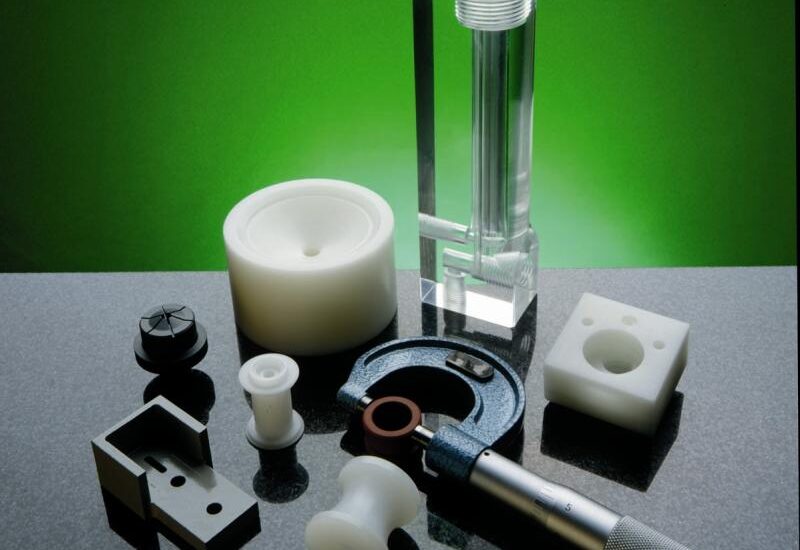- March 11, 2016
- Posted by: EPP
- Categories: Custom Plastic Components, Plastic Machining


It is natural for a company that makes highly sensitive medical devices to turn to a trusted vendor to make its components. But if those components are made of plastic and that vendor is a metal machinist, that can be a huge mistake.
A company that specializes in only machined plastic parts not only brings expertise in dealing with plastics to the table, but can help avoid problems that might arise from contamination or simply not understanding the subtle differences between working with plastic, as opposed to metal parts.
Take the case of a medical analytics company that turned to a metal machinist to make a plastic component. The part had precisely made holes that needed to contain a small ball to measure gas levels. If working properly, the ball would float in the instrument. Unfortunately, even after passing initial inspections, these parts sometimes failed after two to three weeks in the field. The ball would no longer rise. The manufacturer thought it was a problem with static—a reasonable assumption, but one that proved wrong. The real problem became apparent after putting the piece under a microscope. There were tiny cracks inside the holes, not visible to the naked eye. The cracks were due to crazing, a degradation caused by cutting oils. That is not an uncommon problem when metal machining equipment is used to create plastic parts.

Metal parts, unlike plastic ones, typically require the use of oil-based cutting fluids. And no matter how conscientious the metal machinist is, it is nearly impossible to clean every bit of oil from a machine before using it to make a plastic part. Because of this, equipment used to manufacture metal parts, even if used for metal only, can occasionally contaminate plastic parts with those oil-based cutting fluids. Many plastics are highly sensitive to petroleum-based cutting fluids and will degrade if they come into contact with them. Also, many plastics are hydroscopic and will absorb the cutting oils. The result is a part that may pass initial inspections, but will degrade over time and fail in the field.
It is not just cleaning oils off a machine that is difficult for a metal machinist, but also clearing every tiny metal fragment that may remain on a machine used to make metal parts. If the plastic material being machined is soft, residual metal fragments can become embedded in the plastic machined parts. Again, the metal fragment may not cause a problem initially, but over time it can cause the plastic to degrade and stop performing properly.
Problems can also arise in something as simple as how a metal machinist holds a plastic part. With plastic machined parts, the plastic is usually held with vices. Machinists who don’t specialize in plastic have a tendency to hold the plastic the same way they do metal—but this can be too tight for a plastic. As a consequence, when a drill goes into the plastic, the material flexes a bit, which can put stresses on the part that might not surface until later. A plastics machining company would know that, and be able to prevent that from happening. It is a subtle difference in manufacturing, but one that can turn into a huge problem down the road.
Of course, a plastics expert should be more knowledgeable than a metal machinist about the variety of plastics materials available and what uses they’re best suited for. This level of knowledge is especially important in fields like medical device technology, where manufacturers often use plastics that are less common than those used for other purposes. A plastics expert can help designers and manufacturers sort through materials according to factors such as sensitivity to humidity, abrasion resistance and thermo-sensitivity.

Sourcing is another important consideration. A metal machinist will most likely get their plastics from a distributor whose materials may come from a variety of sources. They may be able to provide certification, for example, that all the materials they are using are nylon rods, but they may not know the source of those rods. A plastics specialist, on the other hand, should be able to tell you not only what mill the material came from, but also the lot number. If there is ever a problem, they can easily trace the material back to its original source. There is a level of accountability you may not get from a metal machinist.
Of course, not all plastic machining companies are alike. The best for your job is one that is familiar with each machining process you need for your medical device application, as well as with the specific plastic material you will be using. The company should have access to up-to-date information and be willing to share it through property charts or plastic material handbooks. They also should be ISO Certified, use documented SPC (statistical process control) procedures and own the proper inspection equipment such as CMM (coordinate measuring machine) or video inspection systems. These certifications and systems will help ensure that you receive the highest quality medical device for the lowest cost, with the fewest possible errors the first time around.
The final consideration in this is cost. Surprisingly, using a plastics expert may actually save money. Plastics machining companies deal with plastic parts all day long. Their expertise means they can often perform the job more efficiently than the typical metal machinist. But most important, the lower risk of contamination when dealing with a plastic machinist means that medical device parts not only have a higher chance of passing inspection, but a much lower chance of failing down the road. That is important in any industry, but even more so when someone’s health is on the line.
This article appeared in the March 2016 print edition of MDT.

